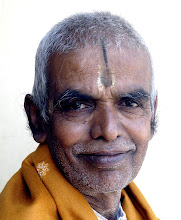Politics does not always pay. This perhaps has been the bitter lesson that the political parties have learnt in the just concluded panchayat elections. They have lost more and there is hardly any gain for anybody.
All the three political parties, the ruling BJP and the opposition parties, the Congress and the JDS had equal share in the undue political hype raised over the polls. . Though the elections to the second and third tiers of the three tier panchayat system, have hardly any bearing on the continuance or otherwise of the party government in power, it was portrayed as if the panchayat poll would be the decider.
It was the Congress and the JDS which set the ball rolling. Both launched a vitriolic campaign braying for the blood of scam tainted Yeddyurappa government. The voters the leaders of the two parties maintained would “surely teach” a lesson to the BJP government.
On the other hand, Mr. Yeddyurappa once again exhibited his propensity for breast beating and ordained that the voters would give a fitting reply to his carping critics and staked the performanance of his more than two year old government for seeking a renewed mandate from the rural voters.
The campaign was shrill to the core. The Congress, which got a new state president, a couple of months, roped in the high fly national leader Gulam Nabi Azad. The two members, father and son team of the JDS’ “national” leadership Messrs Devegowda the former Prime Minister and Mr. Kumaraswarmy bore the brunt of the no holds barred political campaign. And for the BJP, the Chief Minister Mr. Yeddyurappa stomped the districts in a bid to woo the voters. There was nothing unusual in the blandishments offered to the voters, since it has become an integral part of the present day election campaign.
What ultimately happened came as anticlimax to the hype raised. There was no improvement at all. Each of them had their own share of setbacks. The expectations of the political parties that the voters would either “teach a lesson” or give “suitable reply” had been totally belied. The political parties today are happier over the discomfiture of the others than worry about their own share of humiliation.
What happened was that rural voters ignored both and went in their own non- chalet way in expressing their opinion. This was something to what they had done in 2008 election. They preferred BJP but held back their hand to deny the half way mark both in terms of the control of the zilla and taluk panchayats and also in number of seats won and kept the two others far behind.
Of the 30 zilla panchayats, the BJP gained control of 12, four each went to Congress and handed down fractured verdict in the remaining ten. In the 178 taluk panchayats also, the practically the same trend emerged. Of the 176 taluk panchayats, BJP gained could gain control of 68, Congress 31, the BJP 29, and instability stares at 48 remaining taluk panchayats.
BJP as the party in power was expected to put up a good show to control over the majority of the zilla and taluk panchayats, going by the track record of elections held previously. This did not happen. It was four short of the halfway mark in the zilla panchayats and twenty short of the half way mark in the taluk panchayats. Its only consolation has been that as against one ZP it had controlled in 2005, it had captured twelve now. In terms of seats, as against 145 it had bagged last time, its tally has gone up to 441 in the zilla panchayats.
What ever the brave face its leaders may put, the fact that the party had to huff and puff in the Chief Ministers. home district of Shimoga and the Reddy brothers’ bastion of
As for as Congress is concerned, the elections have shown that the party has been slowly losing its hold in the rural areas. While the BJP has been foraying into the Congress pockets of
While JDS is happy that it is on par with the national party like Congress in the number of zilla panchayats won, the fact cannot be hidden that its influence remain confined too few pockets of the vokkaliga dominated Old Mysore districts including the home district of Hassan of Mr. Devegowda. Compared to 2005, the party has suffered erosion of seats, which has come down from 273 to 180. The party has not been able to win a single seat in eight districts.
If only the electoral strategy were to be evolved with little imagination, with the political parties, addressing themselves to the core issues bothering the minds of the rural voters, than go all out for political aggrandizement at the expense of the voters, addressing themselves to core issues bothering the minds of the rural people instead of haranguing them bout their own plans of seeking political aggrandizement through panchayat poll, they could have shaped better in catching the imagination of the rural voters.
The parties went about their political campaign forgetting the fact that the smaller the constitutuencies, the lesser has been the impact of the politics and what matters in these small territorial constituencies, is the personal standing and interplay of castes.
As a matter of fact none of the parties, referred to empowerment of the panchayat raj institutions and how they would improve the delivery system in reaching the benefits of the people or strengthening the financial base of these institutions, which are reeling under the impact of a centralized administrative system as yet in the name of decentralisation.
Eom 1903 hrs. 05.0111
